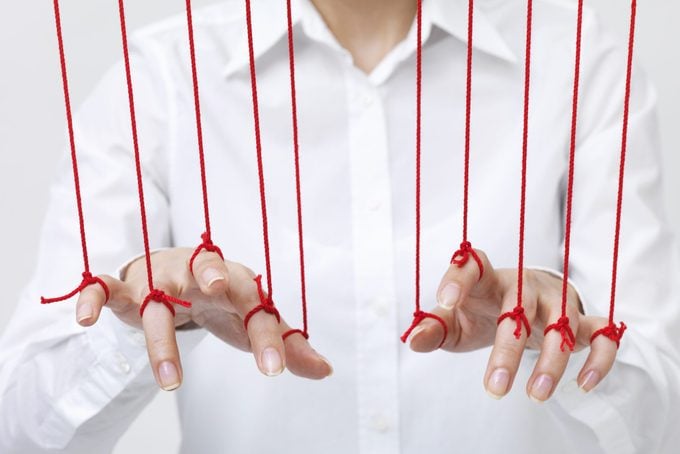Manipulation is a means of control someone exhibits over another. It is often a subtle process and difficult to recognize. Unfortunately, manipulation is on the rise and has consequences for those who are manipulated in addition to those who are manipulating others. In this article, we will explore the definition of manipulation, common signs of being manipulated, and how to protect one’s self from manipulation.
What is Manipulation?
Manipulation is a form of control used to influence another person’s thoughts, feelings, or actions to achieve the desired result. It is a purposeful use of deception or intimidation in order to gain an advantage over someone. Often, these tactics are employed without the other person knowing they are being manipulated. Those who employ such tactics are skilled at hiding their intent and can use manipulation in personal, professional, and public settings.
Manipulators often have a very clear understanding of the power dynamics in a situation and a skillful ability to use them to their advantage. In some cases, they may even be unaware they are manipulating. Some may use it to get what they want, while others use it to gain control of a situation or person. Whether intentional or not, manipulation is a form of deceptive and manipulative behaviour that often results in harm for all those involved.
Common Signs of Being Manipulated
Recognizing when one is being manipulated can be difficult, as most manipulators are very good at concealing their intent and tactics. However, there are certain signs that may indicate that one is being manipulated. These signs include:
1. Feeling controlled or pressured: A manipulator may attempt to control every aspect of a situation and make it difficult for others to disagree or speak up. This pressure can create an atmosphere of fear and uncertainty that can be difficult to escape.
2. Feeling like you are walking on eggshells: A manipulator may attempt to make one feel like they are constantly under scrutiny. If a person feels the need to be overly compliant in order to avoid the manipulator’s wrath, they may be a victim of manipulation.
3. Fear of speaking out: Manipulators often use fear and intimidation to silence their victims. Those who fear reprisals or have a fear of being judged may be more likely to remain silent and keep the manipulator’s behaviour hidden.
4. Feeling unease: Those who are being manipulated may experience a deep sense of unease or dread. In some cases, they may feel guilty or ashamed of the manipulator’s actions and unable to speak out.
5. Feeling like a prisoner: Manipulators may go to great lengths to keep their victims under their control, creating an atmosphere of entrapment or imprisonment. This can be difficult to escape, particularly if there is a financial or other form of dependency.
6. Not understanding how one got into the situation: Manipulators often use subtle tactics to gain control over another person. This may result in the victim feeling as if they were tricked by the manipulator and unable to understand how they ended up in this situation.
7. Lacking control over one’s decisions: Manipulators may make decisions on behalf of their victims without consulting them first. This can make it difficult for the victim to feel in control of the decisions that affect their lives.
How to Protect Yourself from Manipulation
Manipulation is a destructive form of manipulation that can have a damaging impact on those affected. It is important to recognize the signs of manipulation as soon as possible and take steps to protect yourself. Here are some tips to help you protect yourself from manipulation:
1. Recognize the signs of manipulation: As mentioned above, being aware of the signs of manipulation can help you identify when you are being manipulated. Taking the time to pay attention to your feelings and reactions can help you discern if any of them indicate manipulation.
2. Stand up for yourself: Saying no to a manipulator can be difficult but it is essential. Knowing when to draw the line and asserting your boundaries can help you protect yourself from being manipulated.
3. Set realistic expectations: Manipulators often try to push their victims beyond their comfort zone. Setting realistic expectations for yourself and others can help you stay in control of the situation.
4. Speak up for yourself: It can be difficult to speak up for yourself in the face of a manipulator, but it is important to do so. Letting the manipulator know that their tactics are unacceptable and that the relationship is no longer beneficial can be a powerful way to defend yourself.
5. Seek professional help: Recognizing a manipulator is not always easy and in some cases, it is necessary to seek professional help. A therapist can provide the support and guidance needed to help someone protect themselves from manipulation and build the skills to stand up for themselves.
Final Thought
The power dynamics involved in manipulation can be difficult to navigate and can have a damaging impact on all involved. Recognizing the signs of manipulation is the first step in protecting oneself. By being aware of them and employing strategies to stand up for oneself, it is possible to protect oneself from manipulation. If professional help is needed, it is important to reach out to ensure a better understanding of the situation and to obtain support in order to protect oneself.

